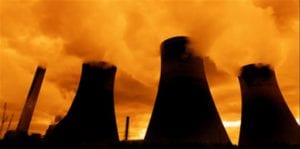Nuclear power is a critical element in limiting greenhouse gas emissions, and a new Technology Roadmap co-authored by the International Energy Agency (IEA) and the Nuclear Energy Agency outlines the next steps for growth in the aftermath of the Fukushima Daiichi accident in Japan and the economic crisis and its effect on financing.
Nuclear prospects remain positive
The new publication finds that the prospects for nuclear energy remain positive in the medium to long term despite a negative impact in some countries in the aftermath of the accident. While nuclear power’s share of global electricity generation was 10% lower in 2013 than in 2010, principally because of Japan’s 48 operable reactors remaining idle, it is still the second-largest source worldwide of low-carbon electricity. And the 72 reactors under construction at the start of last year were the most in 25 years. Yet global capacity must more than double, with nuclear supplying 17% of global electricity generation in 2050, to meet the IEA 2 Degree Scenario (2DS) for the most effective and efficient means of limiting global temperature rise to the internationally agreed maximum.








